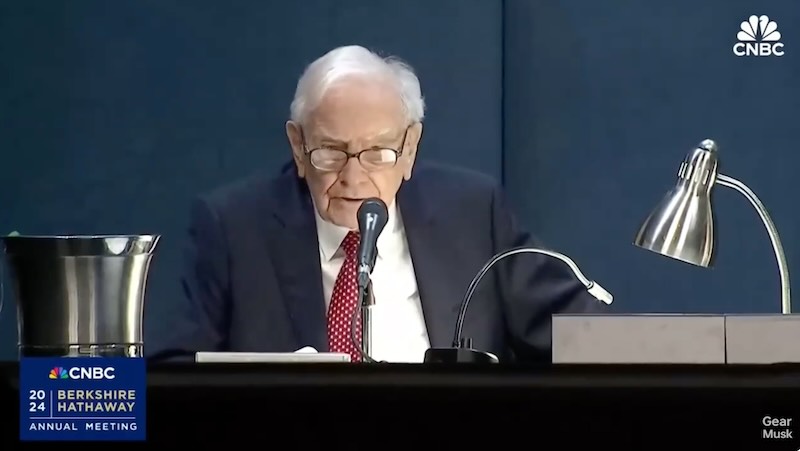Speaking at Berkshire Hathaway’s latest annual shareholder meeting, CEO Warren Buffett welcomed the potential safety windfall Tesla’s self-driving FSD could bring – despite the looming threat it represents to the conglomerate’s massive insurance operations.
“If accidents get reduced 50%, it’s going to be bad for insurance companies’ volume but good for society,” Buffett said. “And good for society is what we’re looking for.”
The 93-year-old investing legend’s remarkably sanguine perspective highlights the double-edged sword that breakthroughs like Tesla’s Full Self-Driving (FSD) system could represent. On one hand, autonomous driving promises to dramatically reduce vehicle collisions and fatalities – a monumental win from a societal cost perspective.
But that same upside translates to major headwinds for auto insurers like Berkshire’s GEICO subsidiary which have built enormously lucrative businesses underwriting human drivers’ risks behind the wheel.
Still, Buffett cautioned that realizing FSD’s full potential remains fraught with technical and scaling challenges that could blunt its impact on the insurance realm, at least in the near-term. Higher repair costs for increasingly complex vehicles may offset some of the cost savings from fewer accidents, he noted.
The famed investor also raised the prospect of new anticipated costs simply shifting from vehicle operations to equipment providers like Tesla as automation progresses – muddying the true sources of liability.
Buffett has yet to sound the alarm on any imminent disruption to Berkshire’s insurance cash cows from the likes of Tesla and autonomous driving tech leaders, willingness to publicly validate the societal merits of their potentially business-upending innovations speaks volumes.
If and when Elon Musk’s team does finally clear the toughest remaining hurdles to unlock autonomy at scale, you can expect Buffett and Berkshire to be level-headed about adapting their massive insurance operations accordingly in their typical pragmatic fashion.
